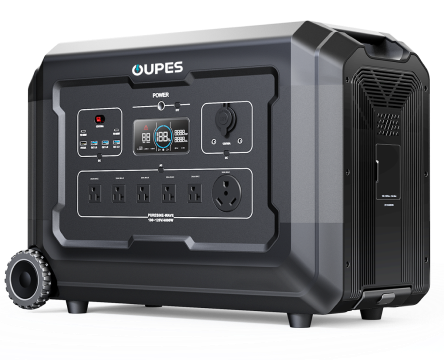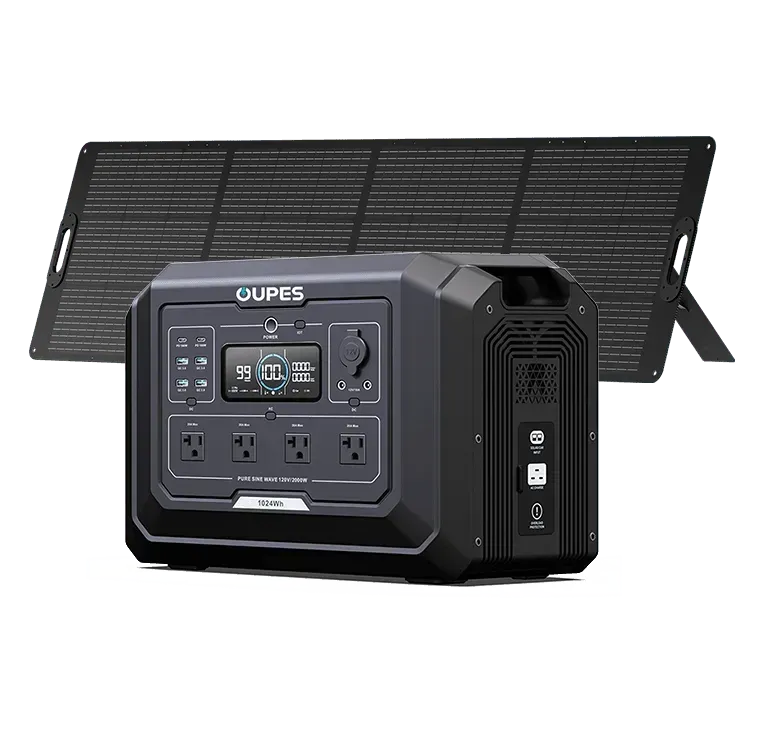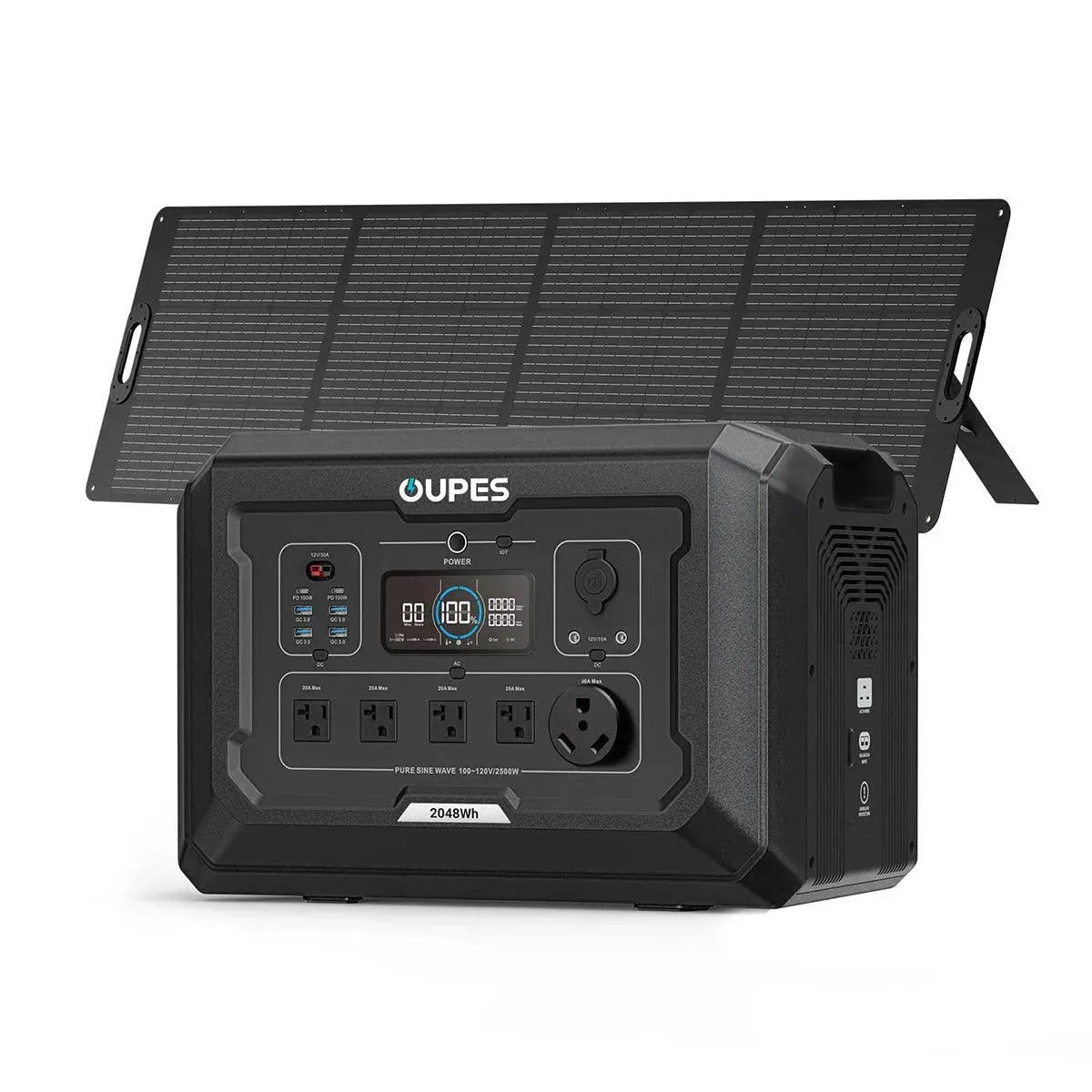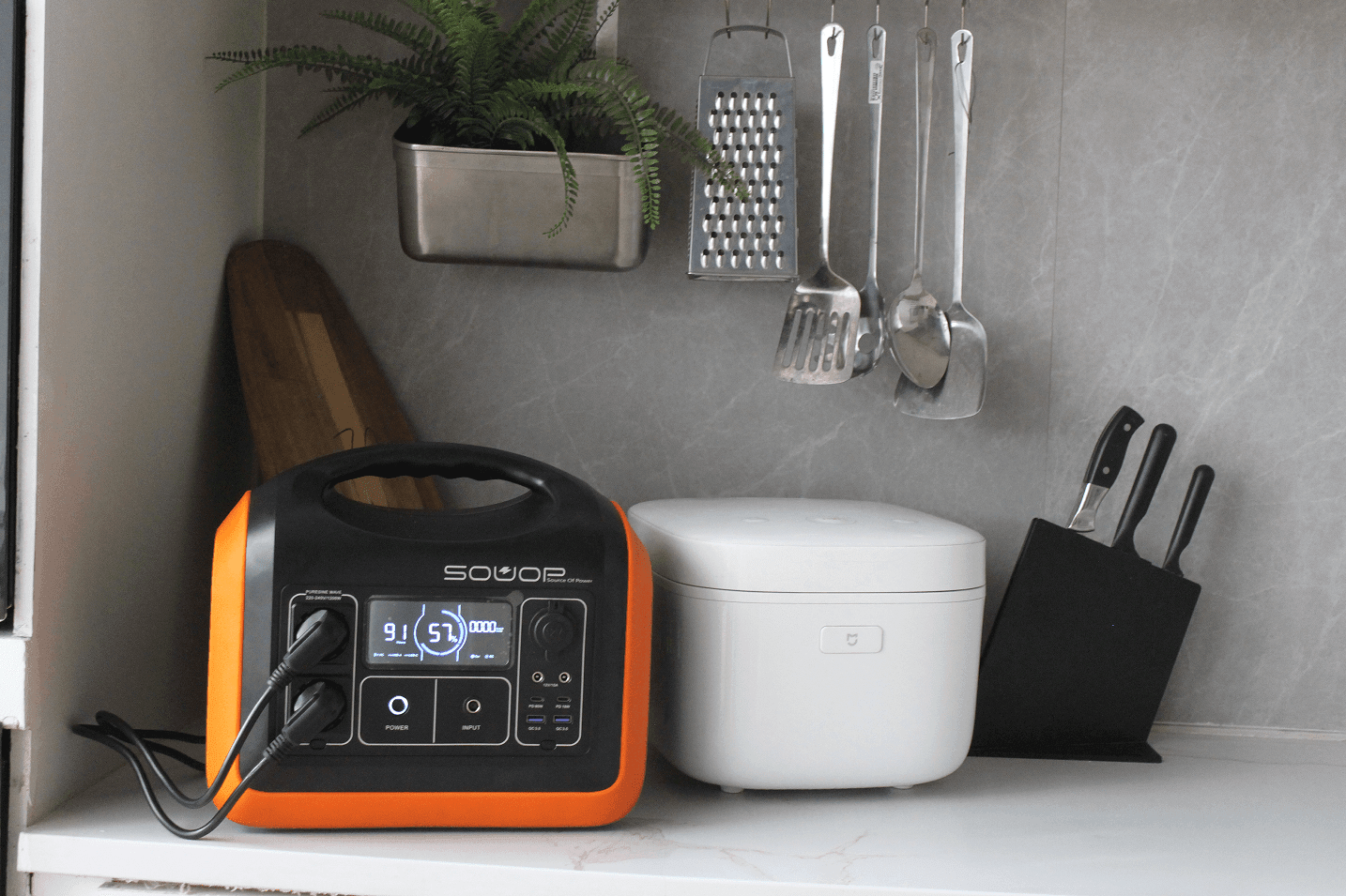What's the first appliance that comes to your mind when power is out? For me, it's the refrigerator.
Do you know why? Given that the refrigerator is a crucial storage for perishables and drinks, the risk of their spoilage escalates with prolonged power outages. Consider considering acquiring an auxiliary power source to ensure your fridge remains operational during electrical disruptions.
Since the refrigerator is always on, consider investing in a backup power supply for your refrigerator to continue running when the electricity is out.
So, if you're wondering how many solar panels you need to keep your home running or want to reduce your electric bill, then understanding how many electricity watts a refrigerator uses is an essential part of the puzzle.
How much electricity does a refrigerator use?

Refrigerators, on average, use 300 to 800 watts of electricity, or between 3 and 6 amps and about 120 volts.
Remember that refrigerators typically use less wattage than their advertised average wattage. This is due to their on-and-off cycling during the day.
A useful guideline is to divide your refrigerator's wattage by 3 to estimate its real energy consumption. For example, a 500-watt refrigerator will likely use around 167 running watts.
Understanding refrigerator wattage, amps, volts
Understanding electricity involves several terms to describe its flow and appliance usage. Here are concise definitions to clarify:
Volts (V)
Volts, or voltage, quantify differences in electrical pressure. Voltage represents the speed at which electricity moves through a circuit.
Amps (A)
Amps, or amperes, gauge electrical current. They measure the number of electrons (constituting electricity) flowing in a circuit.
Watts (W)
Watts, or wattage, result from multiplying volts by amps. Watts indicate the rate of energy consumption.
Kilowatts (kW)
A kilowatt is equivalent to 1,000 watts.
Kilowatt-hours (kWh)
Kilowatt-hours are the measure of your energy usage on your electric bill. Essentially, they represent electricity consumption over time.
You can analogize these terms to water flowing through a pipe – voltage is water pressure, amps quantify the water flow at any point, and wattage reflects the overall rate of water flow through the pipe.
Determine how much energy your refrigerator uses.

To ascertain the energy usage of your refrigerator, start by identifying its wattage. Typically, this information is available on a sticker inside the fridge or occasionally at the rear of the unit. You can also consult your appliance's user manual for specifications.
Within the specifications, you'll find details on volts and amperes. For instance, if your refrigerator operates at 120 Volts and 5 amperes, these values provide key information for calculating energy consumption.
Volts = 120
Amperes = 5
Watts = Volts * Amperes
Watts = 120 * 5
Watts = 600
How many watts do refrigerators use? Breakdown by period
|
Refrigerator Wattage |
Actual Energy Usage |
Length Of Time Powered |
KWh Of Electricity Used |
|
500 W |
167 W |
1 hour |
0.167 kWh |
|
500 W |
167 W |
1 day |
4 kWh |
|
500 W |
167 W |
1 week |
28 kWh |
|
500 W |
167 W |
1 month |
122 kWh |
|
500 W |
167 W |
1 year |
1,463 kWh |
Tips for optimizing refrigerator power usage
Implement these practices to reduce your refrigerator's energy consumption and promote cost-effective and eco-friendly habits.
1. Keep the fridge door closed as much as possible
Avoid prolonged door opening to decide on snacks. Jeeping the door open releases cool air and invites warm air in, which makes the fridge work harder to maintain its temperature.
2. Upgrade to an energy-efficient appliance
Older refrigerators often lack energy efficiency due to outdated technology. Investing in a new, energy-efficient appliance can significantly lower the watts required to operate your refrigerator. The energy usage details are available on the refrigerator's sticker, where more + signs indicate higher energy efficiency.
3. Regularly clean fridge coils
It's a common occurrence for the condenser coils to clog with dust and pet hair. You can prevent it by cleaning coils to ensure optimal functioning since clogged condensers typically increase energy consumption and maintenance.
4. Keep your fridge in a cool, dark area
Position your refrigerator away from heat sources or direct sunlight. Placing it in a cool, dark location reduces the effort required to cool its contents, which preserves energy.
5. Maintain optimal temperature settings
Set your refrigerator and freezer at optimum temperatures (5 degrees Celsius and -18 for the freezer) to use only necessary watts while ensuring food safety. Each additional degree of temperature may increase electricity consumption by approximately 6%.
Selecting a Battery-Operated Generator for Your Refrigerator

1. Estimate your fridge’s power consumption
Begin by calculating your refrigerator's wattage, which can vary significantly. Check the amp information on the refrigerator's sticker; for instance, if it requires 6.5 amps, multiplying by 120V gives an average of 780 watts.
2. Determine starting wattage
Refrigerators experience a power surge when the compressor starts, usually 2-3 times the average running watts. In the given example, a generator with a capacity of 1,560 watts would be needed. Confirm startup wattage in your refrigerator's manual.
3. Browse Oupes power stations
Explore the Oupes Mega Series designed for various appliances. These generators offer a solution for reducing electricity costs and providing reliable home backup power. Consider solar generators, which eliminate noise, fumes, and heavy maintenance, suitable for indoor or outdoor use.
Consider Oupes Solar Generators
Even the finest refrigerators have limitations when sustaining wattage during a power outage. So, relying entirely on the top refrigerator models may need to be more foolproof.
Furthermore, some refrigerators carry sentimental value, whether received as a gift from a grandparent or purchased at a favorite location. The prospect of discarding such a refrigerator can be a challenging decision.
However, there's no need to fret about parting with it. You can keep your refrigerator for as long as you desire. The emergence of solar generators has facilitated this possibility. Although not a direct replacement for electricity, these technologies stand prepared to offer essential supplements.
Here is a look at some benefits of owning a solar generator.
Let's explore top Oupes generators that can provide sufficient energy for your refrigerator, including the starting watts.
OUPES Mega 5
This is the latest and the most powerful Oupes solar product.
With a power output of 4000W and a capacity of 5040Wh, this model offers unlimited power supply to all home appliances for days.
Are you thinking of convenience and productivity? You're probably imagining OUPES Mega 5 Home Backup & Portable Power Station.
OUPES Mega 3
Equipped with 3600W power output and 3000Wh capacity, the OUPES Mega 3 transcends imagination.
This series provides a continuous power source for 99% of your home appliances, including your refrigerator.
With Mega 3, you can say goodbye to the epileptic power supply.
OUPES Mega 2 power station
With a capacity of 2048Wh and a 2500W AC output, OUPES Mega 2 Power Station can power 99% of your home appliances.
And if you're an outgoing type, you have a power ally due to Mega 2 durability and portability.
Thinking about your darling refrigerator? This generator could serve as a power source for more than 24 hours.
FAQs

1. How much watts do a mini fridge
Diminutive cooling apparatuses, commonly known as mini-fridges, typically necessitate an electrical consumption ranging from 50 to 100 watts, culminating in an annual energy expenditure close to 310 kilowatt-hours (kWh). This consumption fluctuates depending on the appliance's vintage and continuous connection to a power source.
2. How many solar panels does it take to run a refrigerator?
A standard refrigeration unit demands between 300 and 800 watts for its operation. Given that solar panels are frequently rated near 350 watts, a singular to a trio of these panels is requisite for energizing most refrigeration systems. Acknowledging the likelihood of augmented energy demands, such as scenarios where the refrigeration portal remains ajar for extended durations, is pivotal.
3. How much electricity does a home use?
Residences in America, on average, utilize approximately 10,715 kilowatt-hours (kWh) of electricity per annum, which translates to roughly 893 kWh each month. A refrigerator, with an average power specification of 167 watts, accounts for an estimated 18 to 20 percent of this consumption. Nonetheless, these proportions are subject to variation, influenced by seasonal changes, geographical location, and the specific model of the refrigerator.
4. What size battery do you need to back up a refrigerator?
Most popular home batteries, such as the Tesla Powerwall or Generac PWRcell, with 4 to 5 kW or higher power ratings and 10+ kWh usable capacity, can effectively power a refrigerator. Since fridges use 300 to 800 W (0.3 to 0.8 kW) of power at once and 4 kWh daily, most batteries are adequate for backup.
5. What size generator do I need to run a refrigerator?
The wattage a refrigerator uses varies during operation and startup. The starting wattage is higher, requiring a brief supply of these watts. A refrigerator typically requires around 1500 watts from the generator to initiate and sustain operation.
6. Will a 1500-watt generator run a refrigerator?
Yes, a 1500-watt generator is sufficient for running a refrigerator. Calculating your refrigerator's wattage, as discussed earlier, helps determine compatibility.
7. Can I run a full-size refrigerator using a solar generator?
Indeed, with a sufficiently large and efficient solar generator, running a full-size refrigerator is feasible without any issues.
8. Can a generator damage a refrigerator?
A high-quality generator does not harm a refrigerator. For instance, Jackery incorporates a built-in BMS system with 12 layers of charging safety guarantees and monitors energy consumption.
9. What generator size is required for a refrigerator?
Determine your refrigerator's wattage, as outlined earlier. Starting the generator demands more power than running it. For instance, if your 750-watt fridge has a startup wattage of 1,200 watts, a 1,500-watt generator is adequate. Check the startup wattage in your manufacturer's manual.
Conclusion
A fridge is a crucial electrical device in every home. Understanding its wattage consumption and optimizing its energy efficiency is equally important. This knowledge can lead to significant savings on your electricity bills. Moreover, to enhance energy conservation, think about purchasing a solar generator. Such a device can power your refrigerator using sustainable energy sources. Explore Shop Oupes's selection for the ideal battery-powered generator tailored to your household requirements.

































Leave a comment
This site is protected by hCaptcha and the hCaptcha Privacy Policy and Terms of Service apply.